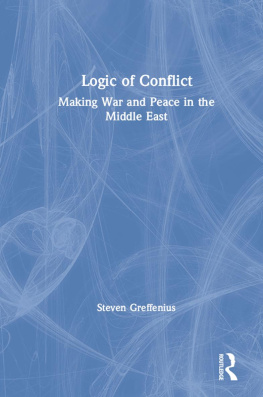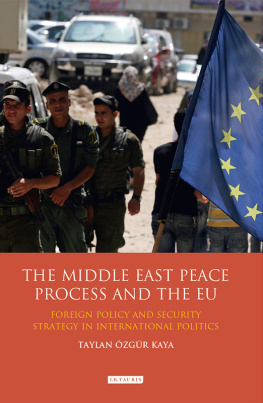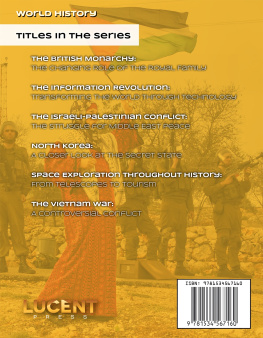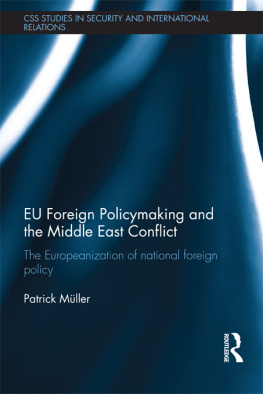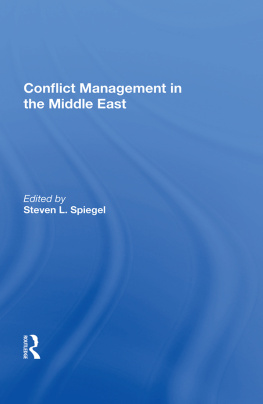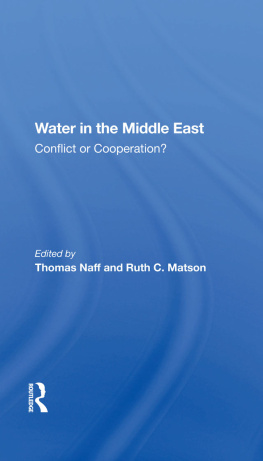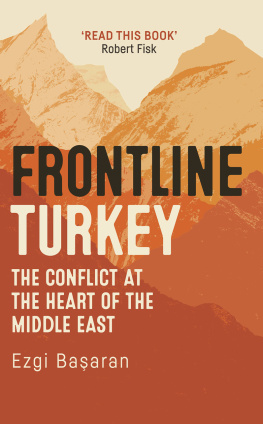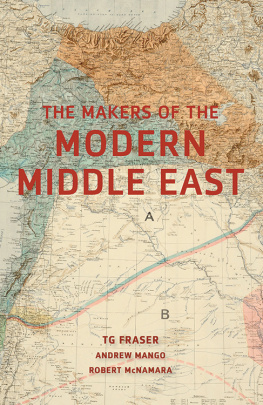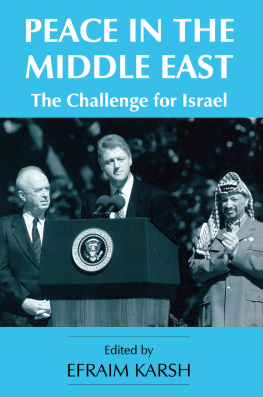First published 1993 by M.E. Sharpe
Published 2015 by Routledge
2 Park Square, Milton Park, Abingdon, Oxon OX14 4RN
711 Third Avenue, New York, NY 10017, USA
Routledge is an imprint of the Taylor & Francis Group, an informa business
Copyright 1993 Taylor & Francis. All rights reserved.
No part of this book may be reprinted or reproduced or utilised in any form or by any electronic, mechanical, or other means, now known or hereafter invented, including photocopying and recording, or in any information storage or retrieval system, without permission in writing from the publishers.
Notices
No responsibility is assumed by the publisher for any injury and/or damage to persons or property as a matter of products liability, negligence or otherwise, or from any use of operation of any methods, products, instructions or ideas contained in the material herein.
Practitioners and researchers must always rely on their own experience and knowledge in evaluating and using any information, methods, compounds, or experiments described herein. In using such information or methods they should be mindful of their own safety and the safety of others, including parties for whom they have a professional responsibility.
Product or corporate names may be trademarks or registered trademarks, and are used only for identification and explanation without intent to infringe.
Library of Congress Cataloging-in-Publication Data
Greffenius, Steven, 1954-
The logic of conflict : making war and peace in the Middle East / Steven Greffenius
p. cm.
Includes bibliographical references and index.
ISBN 1-56324-073-4.
1. EgyptForeigh relationsIsrael.
2. IsraelForeign relationsEgypt.
3. Israel-Arab Border Conflict, 1949- Egypt.
4. Persian Gulf War, 1991.
5. WarDecision-makingCase studies.
I. Title.
DT82.5.I7G741993
327.6205694dc20
92-39193
CIP
ISBN 13: 9781563240737 (hbk)
Shakespeares Henry V records a scene in which the young king receives a gift of tennis balls from the crown prince of France. The king of England, already contemplating war, takes the gift for the insult that it is. He observes testily of the crown prince that this mock of his shall turn his balls to gunstones, and his soul shall stand sore charged for the wasteful vengeance that shall fly with them. Wastful vengeance describes aptly what occurs on the battlefield when nations fight, and its prevention motivates much writing about war. My argument ties this literature to a field that is often called the logic of inquiry. I criticize an influential and deliberately analytical approach to the study of international conflict and show what can be gained by bringing more integrative or synthetic approaches to bear on problems in the field. I began the study as an effort to work out some problems in international relations theory and it has remained that through eight years of writing and research.
Still, the book is more than incidentally about the Middle East, and evidence from the region informs the argument made here. This evidence is of two kinds: traditional historical material from both primary and secondary sources, and data on events that have occurred during the course of both conflictual and cooperative exchanges between the actors there. The treatment focuses on the relationship between Egypt and Israel between 1967 and 1979, a period that saw their relations pass from the most intense antagonism to a reasonable degree of comity if not friendship. The two countries interacted a great deal during this period, and because of their location and their alliance ties, their conflicts commanded the attention of the entire world. As Henry Kissinger pointed out at the time, the Middle East is to the twentieth century what the Balkans were to the nineteenth: a region of dangerous wars.
Thus, the books audience is intended to encompass both those interested in international relations and students of Middle Eastern politics. Although I make a strong argument in the realm of international relations theory, I steadfastly avoid taking sides in the conflicts that have riven the Middle East for so long. Occasionally I praise or criticize one or the other side in these conflicts, but the books purpose has nothing to do with taking a stand on the substantive issues in this area. Similarly, I do not make proposals for how best to achieve peace in the region. There are lessons to be learned from the often tortuous path Israel and Egypt took toward their own peace, but to apply those lessons to the present would make the book dated very quickly. Rather, I stay with my original intent, which is to draw evidence from Middle Eastern politics that can serve as an empirical base for investigation and development of several ideas about the logic and nature of international conflict. Those ideas are set out in a formal fashion in the theoretical chapters and are discussed in historical context in the chapters on the Middle East.
The book begins with three theoretical chapters that pertain to the logic-of-inquiry portion of the argument. The bulk of the book, beginning in on the Gulf War returns to the Middle East but with a focus on different actors. The concluding chapter amalgamates the theoretical and historical aims of the book, restating its early themes in light of the subsequently presented evidence.
A lot of people helped me to complete this book and I am happy to be able to recognize and acknowledge that help here. Above all, gratitude must go to Ben Most. He inspired this study and gave me a lot of guidance during its early stages. Ben died of a heart attack nearly six years ago. He was only thirty-eight. I wish he could see the final result and that I could thank him in person, but I think he knew that what he saw in embryonic form would come to something in the end. John Nelson also helped me a lot and deserves more thanks than I can give him. He has a wonderful mind and a love of living that remind me of the great Samuel Johnson. I am very fortunate to have had his advice and friendship.
Other people who have assisted me along the way include Roger Bakeman, who kindly supplied the sequential analysis program he wrote. That was back in the days when programs were still written to big reels of tape, so sending me the program was rather cumbersome. Also deserving of recognition are the staff of the University of Iowa Laboratory for Political Research, who helped set up the program for the data analysis. The book was finished during two very productive years at the HopkinsNanjing Center in Nanjing, China; both the students and staff there made it an excellent place to write. Russell Leng, William Dixon, T. Clifton Morgan, and several other (anonymous) scholars have taken time to comment on this work at various stages. Scholars must often wait six months or more for criticism of their work, but the referee for M.E. Sharpe completed an excellent review of the entire manuscript in less than one. Thanks go to the editors of






